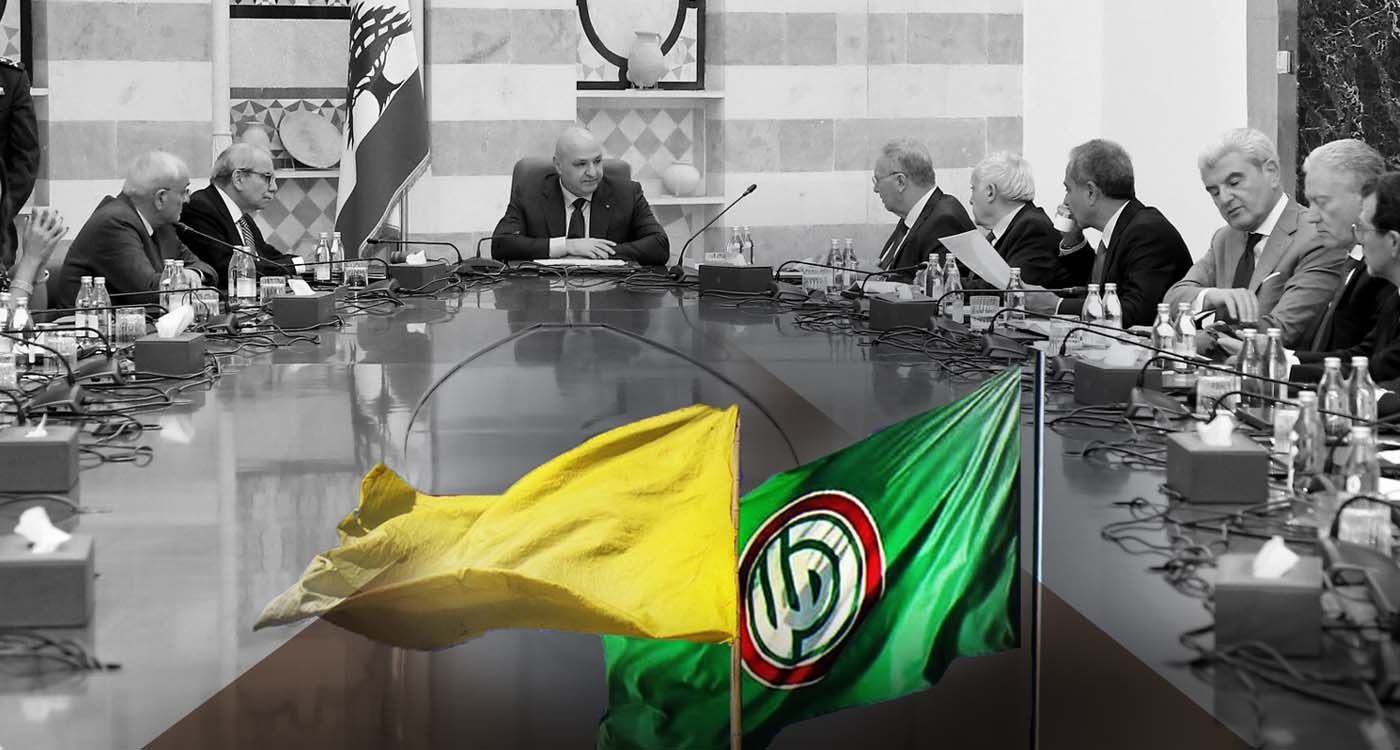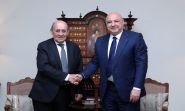
The Council of Ministers will meet today to examine the Lebanese Army’s plan for militia disarmament.
Despite the uncertainty, three points are clear before the session: the meeting will take place, ministers from the Shia duo will attend, and the army’s plan will be formally submitted to the government.
However, serious doubts remain that could threaten Lebanon’s ability to assert its sovereignty, recover politically, and regain its place on the regional and international stage.
An Expanded Agenda to Accommodate the Shia Duo
The session was initially called to address a single issue: the army’s proposal to disarm all militias and restore the state’s monopoly over arms. Yet, four additional topics were added at the last minute to ensure the participation of Amal and Hezbollah ministers.
The meeting was originally meant to focus solely on the army’s plan, drafted after the August 5 and 7 decisions, when the government endorsed both the principle of exclusive state control over arms and the eleven objectives of the United States roadmap for Lebanon.
Parliament Speaker Nabih Berri and ministers close to Amal and Hezbollah rejected a single-item session. They demanded that other items be included, notably the payment of August allowances to military personnel. Prime Minister Nawaf Salam initially resisted but eventually gave in under pressure from President Joseph Aoun. According to ministerial sources quoted by This is Beirut, the four extra items were added with the understanding they would require no more than twenty minutes of debate. “A gesture presented as a favor from Salam to the Shia duo in the hope of securing their participation,” explained the sources.
“If the session does not take place, it would be a serious blow to the government,” a political figure told This is Beirut.
The Core Issue Remains
Even after broadening the agenda, the Prime Minister remains firm on the central point: the army’s plan must be submitted and debated. “Salam has no objection to discussing other items, but he refuses to allow them to overshadow the essential goal of the meeting, which is to set a clear roadmap for disarmament,” the source emphasized.
Shia Strategy: Attend Without Endorsing
On the Shia side, the strategy appears clear. They will attend the session without endorsing a plan they reject in principle. Several outcomes are possible: remaining silent during the debate, walking out once Army Commander Rodolphe Haykal begins his presentation, or intervening to block a vote.
However, according to information reported by certain media outlets, of the five Shia ministers in the government, one—namely the Minister of Administrative Development, Fadi Makki—intends to attend the entire session. It should be noted in this regard that Mr. Makki is not affiliated with the Amal-Hezbollah duo.
The Army’s Plan in Detail
According to a well-informed source, the document prepared by the Army Command does not call for invading sensitive areas or directly confronting Hezbollah. Its purpose is different. “From the day it is approved, any weapon visible to or known by the army becomes illegal, and the army has a mandate to seize it,” the source told This is Beirut. Gun permits, which are currently widely distributed, would be revoked except in strictly regulated cases.
Implementation could proceed in geographic phases, explained a security source, starting with Beirut, then Mount Lebanon, the North, the Beqaa and Baalbeck-Hermel. Step by step, areas cleared of illegal weapons would be declared. At the same time, the US would seek concessions from Israel, following the principle of reciprocity outlined in the American roadmap presented by special envoy Tom Barrack.
The Risk of Deadlock
One concern is that Shia ministers could withdraw, which might prompt President Aoun to suspend the session to preserve the National Pact. While unlikely, this possibility hangs over the meeting like a sword of Damocles. “Such a scenario would be seen as a step back from the firm decisions of August 5 and 7 and could anger Washington and Riyadh, which expect a tangible commitment from Beirut,” said the source.
An additional scenario that could also be expected, according to well-informed but unconfirmed sources, would be that once the disarmament project is presented before the council, there would be neither a vote nor a final decision. A few days would then be granted to the ministers, who would need to consult their respective parties in order to study and discuss the plan before proceeding to a vote, within the framework of a new session scheduled for this purpose.
Another critical issue is the timeline. “Without clear deadlines, the plan risks remaining theoretical,” noted journalist and political analyst Ali Hamade. The government has set December 31, 2025, as the target date for completing the process. The challenge now is to meet it. All the more so as, according to recent information obtained by This is Beirut, the implementation of this plan could be spread over a period of 15 months, thereby exceeding the initial deadline of December 31, 2025.
Why fifteen months? Because, according to the same sources, the Lebanese army would need additional equipment, increased funding, and at least 10,000 personnel to successfully carry out its mission.
A claim contested by a source close to the matter: “It seems unlikely to me that the army could extend this timeframe, especially since when the Council of Ministers asked the military institution to prepare its plan, it had initially insisted that its execution be possible within three months.”
Regional developments have also entered the debate. On Thursday, Labor Minister Mohammad Haidar, a Hezbollah ally, wrote on X that it is incongruous to discuss disarmament while “the Israeli enemy continues to kill civilians.” Reports suggest that Amal and Hezbollah ministers may open Friday’s meeting with a statement condemning Israel’s escalation and criticizing the state’s silence.
This stance highlights the fragility of Lebanon’s internal balance. By questioning the army’s ability to protect the country, the entire disarmament process is weakened, giving Israel an argument to maintain its presence and risking a resurgence of old sectarian militias.
Friday’s Council of Ministers meeting, that was preceded on Thursday by consultations between Baabda, Ain el-Tineh, and the Grand Serail, is therefore a moment of truth. If the cabinet approves the army’s plan with a credible timetable, Lebanon could take a decisive step toward restoring sovereign authority. If deadlock prevails, the country risks sliding deeper into institutional paralysis at a time of mounting international pressure and persisting regional volatility.




Comments